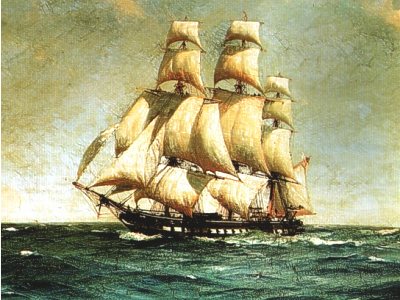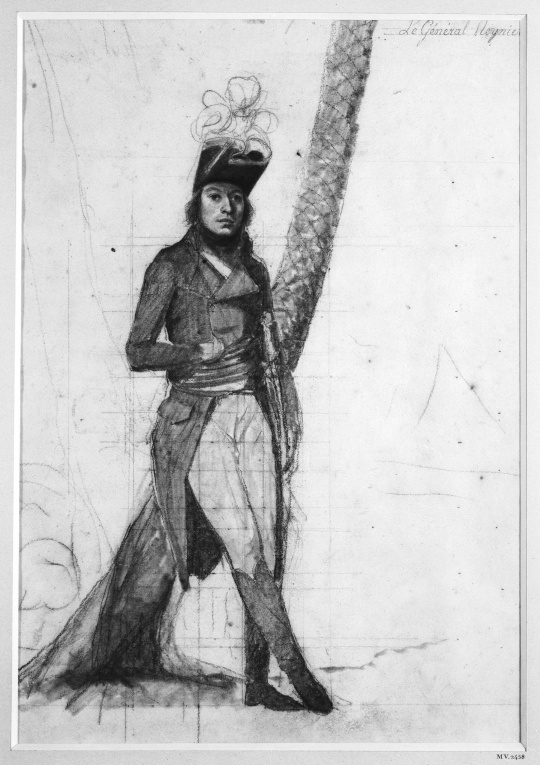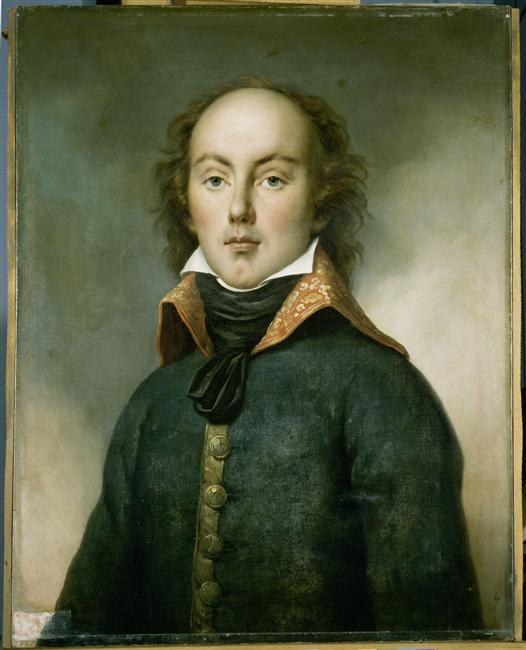|
French Frigate Alceste (1780)
''Alceste'' was a ''Magicienne'' class frigate of the French Navy, launched in 1780, that the British seized at the Siege of Toulon. They transferred her to the Kingdom of Sardinia, but the French recaptured her a year later in the action of 8 June 1794. The British captured her again at the action of 18 June 1799 and took her into service as HMS ''Alceste''. In 1801 she became a floating battery and she was sold the next year. Career At the outbreak of the French Revolution, ''Alceste'' served in the Mediterranean until she was put in the reserved and disarmed in Toulon. The royalist insurrection found her there; the British, who supported the royalists, seized her and transferred her to the Kingdom of Sardinia before the conclusion of the Siege of Toulon. The 32-gun ''Boudeuse'' recaptured her in the action of 8 June 1794. The French then took her back into French service. On 4 August 1794 ''Alceste'' and ''Vestale'' were off Cape Bon when they encountered and captured the ... [...More Info...] [...Related Items...] OR: [Wikipedia] [Google] [Baidu] |
Magicienne Class Frigate
The ''Magicienne'' class was a class of twelve fifth rate 32-gun frigates of the French Navy, each with a main battery of 26 x 12-pounder long guns, and with 6 x 6-pounder guns on the quarterdeck and forecastle. They were designed by Joseph-Marie-Blaise Coulomb. * ''Magicienne'' :Builder: Toulon :Ordered: 7 February 1777 :Begun: March 1777 :Launched: 1 August 1778 :Completed: October 1778 :Fate: captured by British Navy off Boston on 2 July 1781 and added to the British Navy. * ''Précieuse'' :Builder: Toulon :Ordered: 7 February 1777 :Begun: March (or August?) 1777 :Launched: 22 August 1778 :Completed: November 1778 :Fate: out of service in January 1804; broken up in July 1816. * ''Sérieuse'' :Builder: Toulon :Ordered: 28 August 1778 :Begun: March 1779 :Launched: 28 August 1779 :Completed: October 1779 :Fate: sunk at the Battle of Aboukir on 1 August 1798 * ''Lutine'' :Builder: Toulon :Ordered: 23 October 1778 :Begun: March 1779 :Launched: 11 September 1779 :Completed ... [...More Info...] [...Related Items...] OR: [Wikipedia] [Google] [Baidu] |
French Revolution
The French Revolution ( ) was a period of radical political and societal change in France that began with the Estates General of 1789 and ended with the formation of the French Consulate in November 1799. Many of its ideas are considered fundamental principles of liberal democracy, while phrases like ''liberté, égalité, fraternité'' reappeared in other revolts, such as the 1917 Russian Revolution, and inspired campaigns for the abolition of slavery and universal suffrage. The values and institutions it created dominate French politics to this day. Its causes are generally agreed to be a combination of social, political and economic factors, which the ''Ancien Régime'' proved unable to manage. In May 1789, widespread social distress led to the convocation of the Estates General, which was converted into a National Assembly in June. Continuing unrest culminated in the Storming of the Bastille on 14 July, which led to a series of radical measures by the Assembly, i ... [...More Info...] [...Related Items...] OR: [Wikipedia] [Google] [Baidu] |
French Frigate Junon (1786)
''Junon'' was a 40-gun of the French Navy. French service ''Junon'' was commissioned in the French Navy under Captain d'Ettry on 2 May 1786. In 1786, ''Junon'' served as division flagship for Chef d'escadre Charritte in the 12-ship Escadre d'évolution. She was at Cherbourg on 24 June when a naval review and a simulated naval battle took place as Louis XVI visited the harbour. Later that year, she became the flagship for the French division off Western Africa, under Chef de Division Joseph de Flotte. In late 1790, under Lieutenant Villeneuve d'Esclapon, she prepared to sail from Toulon, but never departed. In June 1792, ''Junon'' escorted merchantmen from Toulon into the Atlantic Ocean under Lieutenant Terras de Rodeillac. In December 1792, she ferried Ambassador Sémonville to Constantinople, before returning to cruise off Sardinia, notably supporting the landing of French troops on 14 January 1793. From 26 August 1793, she was under the command of Lieutenant Le Duey, in M ... [...More Info...] [...Related Items...] OR: [Wikipedia] [Google] [Baidu] |
Jean-Baptiste Perrée
Jean-Baptiste Perrée (19 December 1761Levot, p.394 in 1866 write 19 April 1761 – 18 February 1800Levot, p.395) was a French Navy officer and Rear-admiral. Career Born to a family of sailors in Saint-Valery-sur-Somme, Perrée started sailing in 1773 at the age of twelve as a boy on the merchantman ''Glorieuse'', under his father. In the course of the following twenty years, he steadily rose in rank in the merchant navy, took part in a campaign on the fluyt ''Boulonnaise'' in the French Royal Navy as an aid-pilot, and earned his commission of Sea captain in 1785.Granier, p.162 Commerce raiding on ''Proserpine'' In 1793, when France declared war to England on the backdrop of the War of the First Coalition, Perrée enlisted in the Navy as an acting Ensign.''Enseigne non entretenu'' (Granier, p.162) In September 1793, he was reported to be commanding a frigate squadron in the Western Mediterranean, fighting the inconclusive Action of 22 October 1793 against Captain Horatio Nelson ... [...More Info...] [...Related Items...] OR: [Wikipedia] [Google] [Baidu] |
Jean Reynier
Jean Louis Ebénézer Reynier (14 January 1771 – 27 February 1814) was a Swiss- French military officer who served in the French Army under the First Republic and the First Empire. He rose in rank to become a general during the French Revolutionary Wars, and led a division under Napoleon Bonaparte in the French campaign in Egypt and Syria. During the Napoleonic Wars he continued to hold important combat commands, eventually leading an army corps during the Peninsular War in 1810–1811 and during the War of the Sixth Coalition in 1812–1813. Background and education Reynier was born on 14 January 1771 in Lausanne to a protestant family, the son of Jacques François Reynier, a physician, and Caroline Chapuis. Through his father he was descended from French Huguenots from the Dauphiné who fled to Switzerland after the revocation of the Edict of Nantes. His brother Jean-Louis-Antoine (1762–1824), a naturalist and archeologist, held government posts in the French administrati ... [...More Info...] [...Related Items...] OR: [Wikipedia] [Google] [Baidu] |
Jean-Baptiste Barré
Jean-Baptiste Henri Barré de Saint-Leu (28 January 1763, in Paris – 11 April 1830, in Paris) was a French naval officer. Career In 1792, Barré de Saint-Leu, then a Lieutenant, served in Terre-Neuve station under Pierre César Charles de Sercey, commanding the aviso ''Impatient'' which ferried Pouget, an official of Saint Domingue, from Le Havre, and cruised off Saint-Pierre et Miquelon before returning to Rochefort and Nantes. The next year, he commanded the corvette ''Perdrix''. In September 1796, promoted to Commander, he captained the brig ''Pélagie''. In June 1797, he was appointed to the frigate ''Précieuse'', in Brest. Barré commanded the frigate ''Alceste'' during the Expédition d'Égypte. After the Battle of the Nile, he was sent to negotiate exchanges of prisoners with the British. He served with distinction in Egypt, and was awarded a sabre of honour for his conduct.L'Héritier, ''op. cit., p. 53 He was promoted to Captain on 5 February 1799, and appointed t ... [...More Info...] [...Related Items...] OR: [Wikipedia] [Google] [Baidu] |
Expédition D'Égypte
The French campaign in Egypt and Syria (1798–1801) was Napoleon, Napoleon Bonaparte's campaign in the Ottoman Empire, Ottoman territories of Ottoman Egypt, Egypt and Ottoman Syria, Syria, proclaimed to defend French First Republic, French trade interests, to establish scientific enterprise in the region. It was the primary purpose of the Mediterranean campaign of 1798, a series of naval engagements that included the French invasion of Malta, capture of Malta and the Greek island Crete, later arriving in the Port of Alexandria. The campaign ended in defeat for Napoleon, leading to the withdrawal of French troops from the region. On the scientific front, the expedition eventually led to the discovery of the Rosetta Stone, creating the field of Egyptology. Despite early victories and an initially successful expedition into Syria, Napoleon and his Armée d'Orient (1798), Armée d'Orient were eventually defeated and forced to withdraw, especially after suffering the defeat of th ... [...More Info...] [...Related Items...] OR: [Wikipedia] [Google] [Baidu] |
Jean-François-Timothée Trullet
Jean-François-Timothée Trullet (15 April 1755 in Saint Tropez – 27 May 1819 in Toulon Toulon (, , ; oc, label= Provençal, Tolon , , ) is a city on the French Riviera and a large port on the Mediterranean coast, with a major naval base. Located in the Provence-Alpes-Côte d'Azur region, and the Provence province, Toulon is th ...) was a French Navy officer. Biography Born to a family of sailors, and elder brother of Louis-Léonce Trullet, Jean-François-Timothée Trullet joined the Navy as a cabin boy in 1770, before sailing on a merchantman captained by his father. He was appointed commerce captain in 1777. In 1779, he joined the French Royal Navy as an auxiliary ensign and served off Arabia By 1792, Trullet had risen to ensign and served on ''Tonnant''. Promoted to lieutenant in July, he took command of an aviso. From February 1793, he served on the ''Heureux''. In May 1795, Trullet received a temporary promotion to captain and was appointed second captain ... [...More Info...] [...Related Items...] OR: [Wikipedia] [Google] [Baidu] |
Jean-Baptiste Annibal Aubert Du Bayet
Jean-Baptiste Annibal Aubert du Bayet (19 August 1759, Louisiana – 17 December 1797, Istanbul) was a French General and politician during the period of the French Revolution. Aubert du Bayet was born in Baton-Rouge in the Louisiana (New France), French American colony of Louisiana in 1759. Aubert du Bayet participated in the campaigns in America during the American Revolutionary War. French revolution Aubert du Bayet arrived in France at the beginning of the Revolution, but was initially hostile to revolutionary ideas. While in Metz, as a young Captain, he published an anti-Jewish pamphlet entitled ''Le cri du citoyen contre les Juifs''. However, he soon saw that it could serve his ambitions. He became a member of the legislature in 1791. Aubert du Bayet was List of Presidents of the French National Assembly, President of the French National Assembly (the "Legislative Assembly (France), Legislative Assembly") from 8 July 1792 to 22 July 1792. In 1793, he served as General of Br ... [...More Info...] [...Related Items...] OR: [Wikipedia] [Google] [Baidu] |
French Ship Alcide (1782)
The ''Alcide'' was a 74-gun ''Pégase'' class ship of the line of the French Navy, launched in 1782. In 1782, she took part in the American war of Independence in De Grasse's fleet. She took part in the Battle of Hyères, under captain Le Blond Saint-Hilaire. She was the last ship of the French rear when she was becalmed and had to fight HMS ''Victory'', ''Culloden'', and ''Cumberland''. She managed to damage the rigging of ''Culloden'', but was quickly battered by her overwhelmingly superior opponents. She surrendered to ''Cumberland'' at 2h. The frigates ''Justice'' and ''Alceste'' attempted to take her in tow to safety, but were repelled by gunfire from ''Victory''. Soon thereafter, a fire broke out, reportedly in her tops or by her own Heated shot Heated shot or hot shot is round shot that is heated before firing from muzzle-loading cannons, for the purpose of setting fire to enemy warships, buildings, or equipment. The use of heated shot dates back centuries; it was ... [...More Info...] [...Related Items...] OR: [Wikipedia] [Google] [Baidu] |
Battle Of Hyères Islands
A battle is an occurrence of combat in warfare between opposing military units of any number or size. A war usually consists of multiple battles. In general, a battle is a military engagement that is well defined in duration, area, and force commitment. An engagement with only limited commitment between the forces and without decisive results is sometimes called a skirmish. The word "battle" can also be used infrequently to refer to an entire operational campaign, although this usage greatly diverges from its conventional or customary meaning. Generally, the word "battle" is used for such campaigns if referring to a protracted combat encounter in which either one or both of the combatants had the same methods, resources, and strategic objectives throughout the encounter. Some prominent examples of this would be the Battle of the Atlantic, Battle of Britain, and Battle of Stalingrad, all in World War II. Wars and military campaigns are guided by military strategy, whereas bat ... [...More Info...] [...Related Items...] OR: [Wikipedia] [Google] [Baidu] |
Jean Joseph Hubert
Jean-Joseph Hubert (Saint-Arnoult-en-Yvelines, 17 December 1765 – off Cádiz, 25 October 1805Quintin, p.175) was a French Navy officer and captain. Career Hubert joined the French Royal Navy as a volunteer on 27 September 1780, and served on ''Languedoc'' during the American War of Independence. On 5 October 1787, he was promoted to sub-Lieutenant. During the French Revolution, Hubert was promoted to Ensign on 12 January 1792 and served on ''Vengeur'' until she ran aground and was lost off Ajaccio. He was then given command of the xebec ''Jacobin'' (a Mediterranean trading vessel). Promoted to Lieutenant on 10 September 1794, he was appointed on 21 October to captain the frigate ''Boudeuse'', and transferred to the frigate ''Alceste'' on 31 March 1795. On 4 May 1795, Hubert was promoted to captain. Still captaining ''Alceste'', he took part in the Battle of Hyères Islands, where he battled several British ships before rescuing ''Alcide'' On 23 February, Hubert transferr ... [...More Info...] [...Related Items...] OR: [Wikipedia] [Google] [Baidu] |





